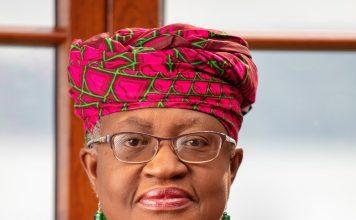Following the economic crisis faced by Nigerians, Dr Ngozi Okonjo-Iweala, the Director General of the World Trade Organisation, has called on African leaders to attract investment, particularly in energy development, youth employment through agriculture and renewable energy, and infrastructural advancement.
The WTO Director -General revealed this at the Economic Community of West African States Investment Forum 2024, organised by the ECOWAS Bank for Investment and Development in partnership with the Togolese government, held in Togo.
Okonjo-Iweala said that despite the economic challenges emanating from the global pandemic, the ECOWAS region could attract investments if members focus on regional integration through the African Continental Free Trade Area, commercial services, especially digital services and a youth-driven workforce.
She said ECOWAS countries account for 0.7 percent of global trade, mainly focused on exporting raw materials, while Africa as a whole accounts for three percent of global trade.
The WTO DG asserted, “African governments must work to reduce commercial costs within the ECOWAS region and improve physical and digital infrastructure.”
Also speaking, Kanayo Awani, the Executive Vice President at African Export-Import Bank, stated that Africa’s persistent infrastructure deficit, which amounts to between $130bn and $170bn per year, or 2 percent of the gross domestic product each year, could be resolved if the region pooled resources towards sustainable innovative financing mechanisms and regulatory frameworks that encourage collaboration.
He stated, “Afrexim bank has implemented projects aimed at developing infrastructure: a 300-megawatt combined-cycle gas power plant in Senegal; a floating dry dock in the port of Takoradi, Ghana; a road linking Côte d’Ivoire, Mali, and Senegal; and a complete LNG train in Nigeria.”
Also speaking, Mabouba Diagne, the vice president in charge of finance and institutional services, ECOWAS Bank for Investment and Development, said there was an urgent need to focus on the production and processing of agriculture products.
He added, “With the assistance of our banks and the ECOWAS Bank for Investment and Development, we can establish a circular economy and successfully tackle challenges.”
Also, Geoffrey Nsofon, the Head of Private Sector Engagement at TAAT Clearinghouse, stressed that it was crucial to enable farmers, who constitute 50 percent of the West African population, to produce with the best technologies and necessary investment.
He was of the opinion for Africa to establish mechanisms to utilise funds secured from the annual export of $50bn worth of food, the continent would also need to prioritise technology in public projects and government investments. Adding that it would need to encourage the private sector to invest in agriculture.
Helen Brume, the Director of Project and Asset Financing at Afreximbank, emphasized on the importance of fostering partnerships between the public and private sectors in collaboration with countries.
She explained the needs for resources to support all in need of investment, asking them to seek local investors.
